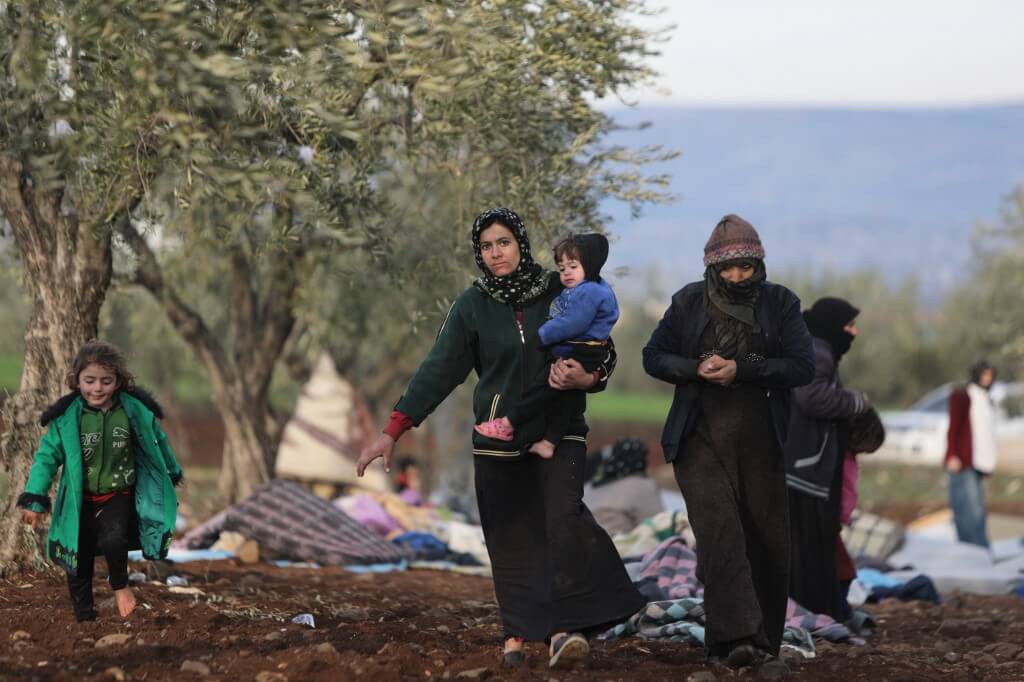Following massive earthquakes in southern Turkey last month, refugees in the quake zone – most of them Syrian – have been subjected to “multi-layered discrimination,” including hate speech, ill-treatment and physical violence, the Kronos news website reported on Friday, citing a report by the Association for Migration Research (GAR).
A 7.8-magnitude earthquake that hit 11 Turkish provinces in the country’s south and southeast as people were sleeping on Feb. 6 was followed by numerous aftershocks, including a 7.5-magnitude temblor, leading to the death of more than 48,000 people in Turkey and wreaking devastation in the region.
Titled “Migration and Earthquake – Due Diligence Report” and released on March 13, the report is based on the impressions from the quake zone of Prof. Dr. Deniz Sert, Assoc. Dr. Didem Danış and Dr. Eda Sevinin between Feb. 23 and 27 and points out that the two most serious problems refugees in Turkey faced after the quakes were hate speech and lack of housing.
According to the report, the official figures show that 1,738,035 of the Syrians who were granted temporary protection status in Turkey, corresponding to 49.64 percent, were directly affected by the earthquakes in February.
The report said the Syrian population has become “invisible” and subjected to serious discrimination in the delivery of post-quake emergency aid, during which the principles of “non-discrimination” and “impartiality” haven’t been respected.
Stating that the Syrians were repeatedly removed from tent cities, temporary shelters and even places allocated to them by the government after the earthquake, Danış added: “People who were already displaced due to the war … were once again displaced by the earthquake. This situation has turned into a recurring and untreated trauma for Syrians.”
A Syrian university student in the Kırıkhan district of Hatay, one of the provinces hardest hit by the powerful earthquakes, told representatives from the association that they slept on the street for three days and then built a makeshift tent for themselves. The Syrian group then helped move some 20 tents from the office of the local administrator. However, when they asked for one for themselves, they were told that the tents were sent for Turks and would not be distributed to foreigners. One of the Syrians in the group already had been granted Turkish citizenship, according to the report.
Sevinin also stated that they observed that the discriminatory attitude against Syrians in the country was not limited to such institutions as the Disaster and Emergency Management Authority (AFAD) and Turkey’s top charity organization, the Turkish Red Crescent (Kızılay), but was also displayed by local administrations.
The official figures show that over 40,000 Syrians had returned to their homeland as of Feb. 28, the report said, adding that the problems of accommodation, hygiene and access to clean water and psychosocial support of the people who continue to stay in the quake-hit cities remain.
Attitudes about refugees fleeing the conflict in Syria have gradually hardened in Turkey, where they used to be welcomed with open arms, sympathy and compassion, as the number of newcomers has swelled over the past decade.
Xenophobia, hate speech and hate crimes against Syrian refugees are increasing in Turkey as the country prepares for upcoming elections, and politicians from far-right parties have been fueling anti-Syrian sentiment in regions hit by the earthquakes.



